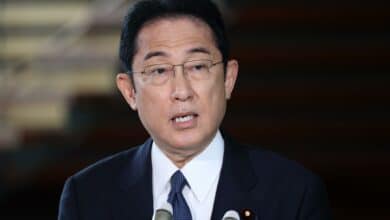EU calls for peacekeeping forces in Kazakhstan to respect sovereignty

Brussels, Jan 6 (EFE).- The European Union stressed Thursday that sending “peacekeeping forces” composed of military personnel from Russia, Belarus, Armenia, Kyrgyzstan and Tajikistan to Kazakhstan at the request of the Kazakh authorities “must respect the sovereignty and independence” of the Central Asian country, which has been plunged into a wave of unrest following an increase in gas prices.
Kazakh President Kassym-Jomart Tokayev on Wednesday night requested assistance from the Collective Security Treaty Organization (CSTO) – a military alliance consisting of the six former Soviet republics – to put an end to the mass unrest, which he called a “terrorist threat,” to which the group immediately agreed.
“We take note of the decision of President Tokayev to ask for assistance from the heads of the CSTO states to send peacekeeping forces to Kazakhstan for a limited period of time in order to help stabilize the situation,” EU foreign affairs spokeswoman Nabila Massrali said Thursday.
“It goes without saying that such an intervention must respect the sovereignty and independence of Kazakhstan,” Massrali added.
The main mission of these forces, according to this alliance, will be “the protection of important state and military objectives, support to the agents of order of Kazakhstan to stabilize the situation and promote their return to the legal framework.”
The first contingent to arrive in Kazakhstan was the Russian, made up of Airborne Troop units, which according to the CSTO, “are already carrying out their designated missions.”
Brussels, Massrali added, is “closely” monitoring the complicated situation in Kazakhstan since protests and riots broke out earlier this week over gas price hikes, leading to the resignation of the government.
Dozens of people, including demonstrators and security forces, have died in the protests, for which the European Union has called for “restraint from all parties involved and a peaceful resolution of the situation,” the spokeswoman said.
“The European Union is ready and willing to support dialogue,” Massrali stressed.
Protests began on January 2 after the cost of liquefied gas, the country’s main automotive fuel, doubled from 60 tenge per liter to 120 tenge per liter (0.14-0.28 dollars).
The initial economic demands of the protests have gradually turned political, with the main demand now being an end to the “regime” of former president Nursultan Nazarbayev, whom opponents accuse of still maintaining political power in Kazakhstan in the shadow of the current president. EFE
lzu/pi/lap





